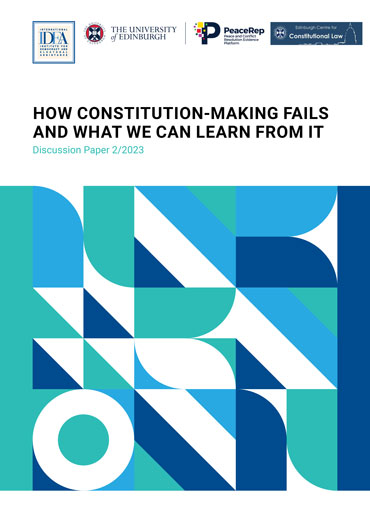How Constitution-making Fails and What We Can Learn from It
Constitution-making is often integral to achieving a new political settlement after conflict and in fragile settings.
However, the process fails with relative frequency, in that actors cannot agree on a new text or the finalized text is not approved or ratified. While failure may be temporary—the process may resume after a period of time—it can also be costly. Key reforms may depend on the adoption of a new or revised constitution, and in its absence negotiations may stall and conflict recur.
This Paper starts a conversation about the potential grounds for, and strategies to prevent or build on, failure. It was developed following the Ninth Edinburgh Dialogue on Post-Conflict Constitution-Building held in September 2022.
Co-published with Peace and Conflict Resolution Evidence Platform and the Edinburgh Centre for Constitutional Law.
